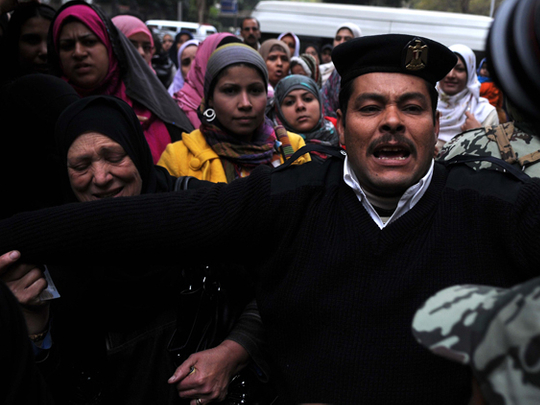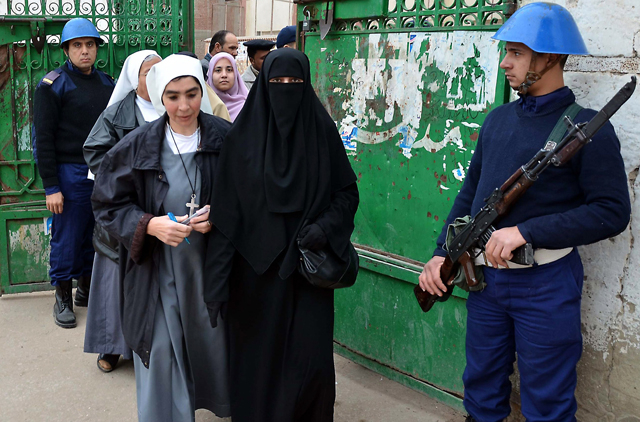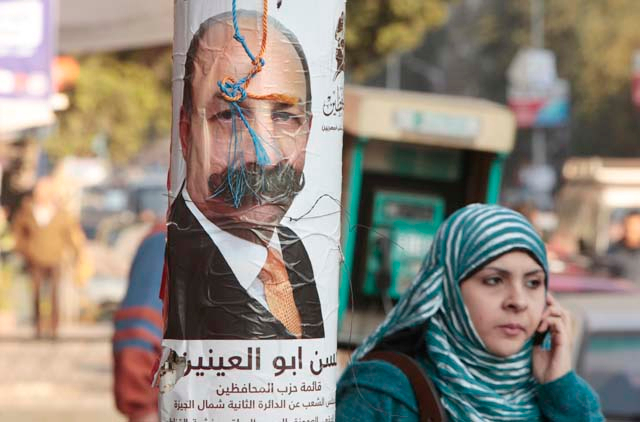
Cairo: In scenes recalling strong showing in the initial round of Egypt's first parliamentary elections since former president Hosni Mubarak's ouster earlier this year, large numbers of Egyptians Wednesday appeared in most nine of the country's 27 governorates to elect their deputies.
Hours before the polling stations were to open, many voters queued up, mainly in the governorates where the Islamists have a lot of clout.
Buhaira, Esmailiya and Sharqia — among the governorates where voting was held on Wednesday — are known to be the Islamists' heartland.
Muslim Brotherhood
"This is the first time for me to vote," said a woman wearing the niqab full veil in an electoral district in Buhaira. "I'll vote for the Muslim Brotherhood because they have always been there supporting us," added the woman, referring to Egypt's influential Islamist group.
The Brotherhood's Freedom and Justice Party garnered around 45 per cent in the first round, followed by the ultra-conservative Salafist Al Nour with 20 per cent. The liberal Egyptian Bloc trailed third with 9.3 per cent.
State television showed long queues of voters gathering in the governorate of Menufia, the hometown of Mubarak, and where his now-dissolved National Democratic Party used to monopolize parliamentary seats.
As lines of voters stretched at polling stations, security and military forces were deployed to foil any bid to disrupt the balloting.
Illegal canvassing
The only reported incident of violence occurred in the district of Al Saf in Giza, near Cairo, where supporters of two rival contenders clashed over illegal canvassing, reported state television. Soldiers on duty immediately intervened and rounded up the "rioters", according to the report.
"Since 8am, 99 per cent of the polling stations were open," said Abdul Moez Ebrahim, the head of an independent commission tasked by Egypt's military rulers to oversee the elections.
"There were very few problems at some polling stations where delegates representing the candidates failed to show up on time," he told a press conference in Cairo.
Local monitor groups cited instances of illegal canvassing outside polling booths, mainly in rural areas. Illegal cmpaigning was among the main violations reported in the first round held in late November.
18.82 million eligible to vote
An estimated 18.82 million people were eligible to vote in the two-day second round, according to government figures. More than 3,380 candidates running on party tickets and as independents are vying for the 180 seats up for grabs in the same round.
The current elections are based on a mixed system of party lists and individual contenders. Two thirds of the seats in the new parliament are to be allocated for political parties, with the remaining third for independents.
The final stage of the election is scheduled for January 3.














